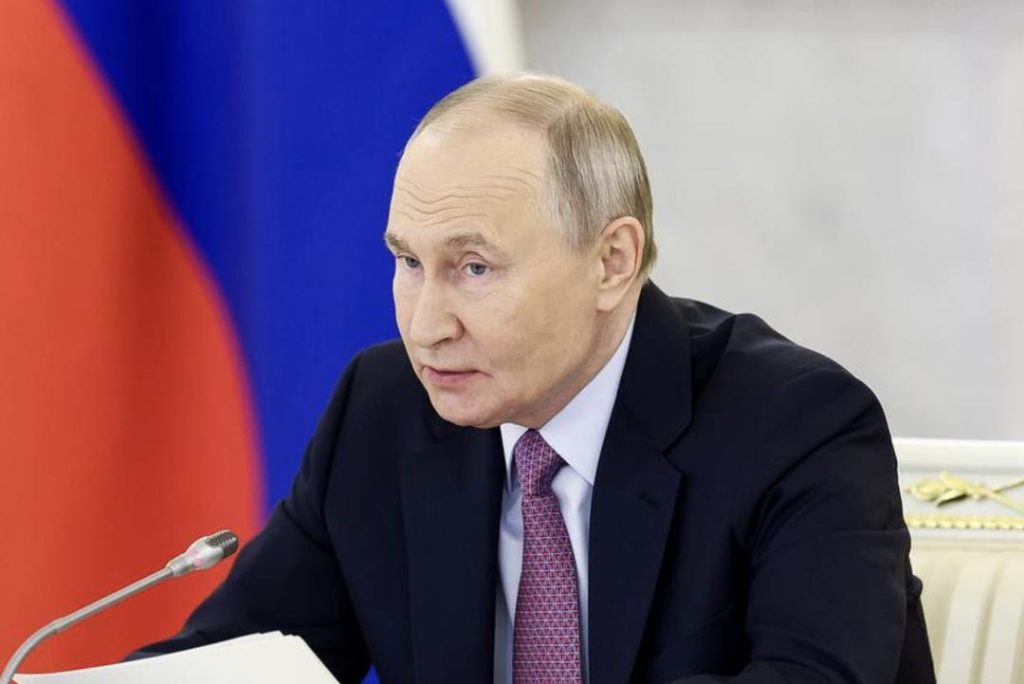
Russia & US in talks on cooperation in Arctic, Alaska: Putin
In a recent development that highlights the growing importance of international cooperation in the face of global challenges, Russian President Vladimir Putin has announced that Russia and the United States are engaged in talks to collaborate on projects in Russia’s Arctic zone and the US state of Alaska. This move marks a significant shift in the relationship between the two nations, as they look to capitalize on their shared interests in the region.
According to Putin, the Russian technologies that are being developed and refined in the Arctic are of great interest to other countries, including the US. This is largely due to the fact that Russia is one of the few nations with the expertise and resources to successfully explore and extract natural resources in the harsh Arctic environment.
“We possess technologies that no one else has today,” Putin emphasized during a recent meeting. “This is of interest to our partners, including those from the United States.”
One of the key players in Russia’s Arctic ambitions is Novatek, the country’s largest liquefied natural gas (LNG) producer. The company is already operating in the Arctic, and its success is a testament to Russia’s capabilities in the region. Novatek’s experience and expertise will undoubtedly be a valuable asset as Russia looks to expand its presence in the Arctic, and its potential collaboration with US companies could have significant benefits for both nations.
The idea of cooperation between Russia and the US in the Arctic is not new, but it has gained momentum in recent years as the region has become increasingly important due to its vast natural resources and its role in the global climate crisis. The Arctic is home to significant reserves of oil, gas, and minerals, and its melting sea ice has opened up new opportunities for shipping and trade.
However, the Arctic is also a challenging and unforgiving environment, and the need for international cooperation in the region is clear. Russia and the US have already been working together on a number of projects, including the development of new technologies and the sharing of best practices.
Russia’s Arctic ambitions are not limited to Novatek, however. The country is also investing heavily in its Arctic infrastructure, including the construction of new ports, roads, and airports. This infrastructure will be critical to supporting the growth of the region’s economy and the development of its natural resources.
The potential benefits of cooperation between Russia and the US in the Arctic are significant. For Russia, a partnership with the US could provide access to new markets and technologies, as well as the opportunity to share the risks and costs associated with developing the region’s resources.
For the US, a partnership with Russia could provide a way to tap into the region’s vast natural resources, while also supporting the country’s own energy security goals. The US is heavily reliant on imported oil, and the development of new domestic resources could help to reduce its reliance on foreign suppliers.
In addition to the economic benefits, a partnership between Russia and the US in the Arctic could also have significant environmental benefits. The region’s melting sea ice is a major contributor to global climate change, and the development of new technologies and practices could help to reduce the region’s carbon footprint.
The talks between Russia and the US are a significant step forward in the development of their relationship in the Arctic, and they highlight the growing importance of international cooperation in the region. As the world continues to grapple with the challenges of climate change and energy security, the need for nations to work together in the Arctic is clearer than ever.
In conclusion, the announcement by Putin that Russia and the US are engaged in talks on cooperation in the Arctic is a significant development that highlights the growing importance of international cooperation in the region. The potential benefits of a partnership between the two nations are significant, and could have a major impact on the development of the region’s natural resources and the global climate crisis.



